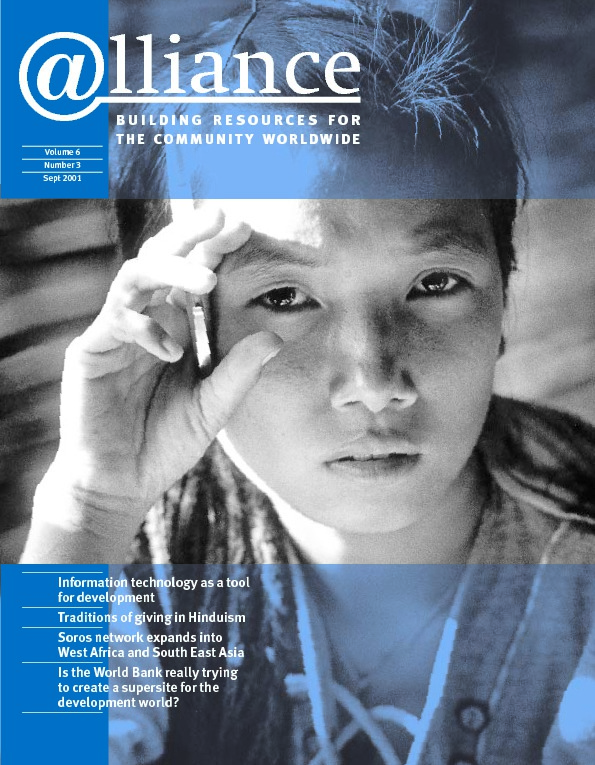Such a title should appeal to any civil society organization. We desperate non-profit managers are always keen to know the magic recipe to find the sources that will provide us with money for the next 20 years and leave us alone, thank you very much. Then comes the inconvenient although suspected answer: no sir/madam, in order to even start becoming self-reliant, you have to work hard. What’s more, you’ve got to believe.
By the time one gets to the middle of page 10, one has to face the inevitable: ‘As CSOs look hard at the questions involved in resource mobilization … a leap of faith is required. CSOs need to be convinced that if they wean themselves from foreign funding … they will be able to mobilize the resources they need.’
Making this leap of faith is the key, and perhaps the most difficult, step for CSOs in Central and Eastern Europe.
In this region, the financial and cultural dependency of CSOs developed historically not only in relation to foreign aid in the last decade but also in relation to the state at least over the last half century. Our ‘learned helplessness’ (as Hungarian social psychologist György Csepeli put it) means that we start from the assumption that the state should solve our problems, take care of us. Many NGOs in CEE were inspired not so much by the positive feeling of wanting to achieve something as by frustration and disappointment at the state’s failure to provide.
‘Holloway’s bugaboo is the foreign institution. Mine is big business. Our different spectres rise from our different regions: his, mainly Africa and Asia, mine, mainly Latin America. The effects are the same: dependency and behavioural modification.’ So writes Daniel Q Kelley, President, Global Work-Ethic Fund, in his comment at the end of the book. For Central and Eastern Europe we could add: central government.
Once we manage the leap of faith, the book is an exciting and useful guide. It looks at various opportunities for self-financing, organized in two main categories: accessing wealth from existing public and private donors with a new understanding of partnership, and generating new wealth – meeting the double bottom line of mission and money through, for example, production and trade, microcredit programmes, tapping social investment or building reserve funds.
Overall, this is a very needed, clearly presented and highly practical book. It constantly suggests ways you can apply the theory to your own organization, providing exercises and occasionally concrete tools as well (eg a proforma fundraising brochure for approaching individual donors). It also contains a good selection of case studies.
A novel idea has been to ask a wide pool of commentators, practitioners and opinion leaders to read the book and comment on it. These provide further interesting viewpoints and information, though a closer screening might have avoided some repetition and irrelevance.
Reading Holloway’s book undoubtedly means more thinking and more work, but it will also be a promising step towards the financial self-reliance of your organization.
Towards Financial Self-Reliance: A handbook on resource mobilization for civil society organizations in the south
Richard Holloway Earthscan/CIVICUS/Aga Khan Foundation £14.95/$25 Developing countries £3.95
To order, contact Earthscan.
Tel +44 1903 828 800
Fax +44 20 7837 6348
Email orders@lbsltd.co.uk
Website http://www.earthscan.co.uk
Nilda Bullain is Chair of the Board of the Civil Society Development Foundation, Hungary. She can be contacted by email at bullain.nilda@ctf.hu
Note on the cover price
In order to ensure the handbook is affordable in the developing world, AKF and the publisher, Earthscan, agreed on a formula by which pre-sales guaranteed by a certain date would lower the cover price. With the help of two grants from the Ford Foundation and two bulk orders, AKF pre-sold 6,100 copies before the agreed printing date, thereby bringing the cover price down from £14.95 (now the developed world price) to £3.95 for developing countries.






Comments (0)